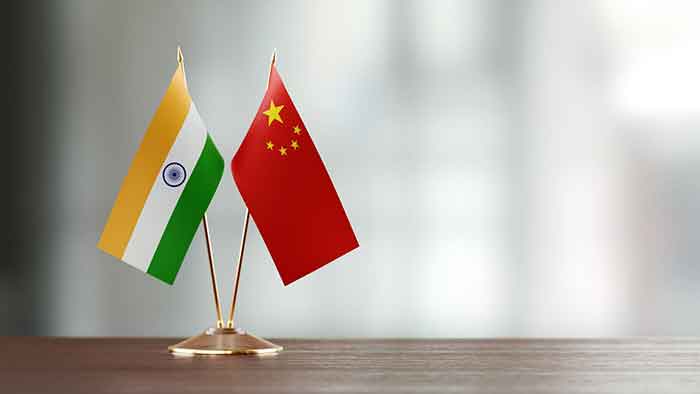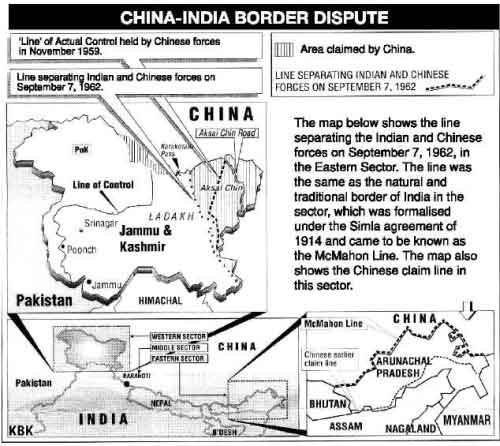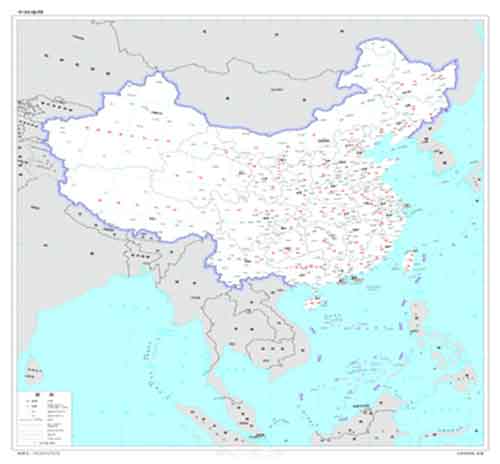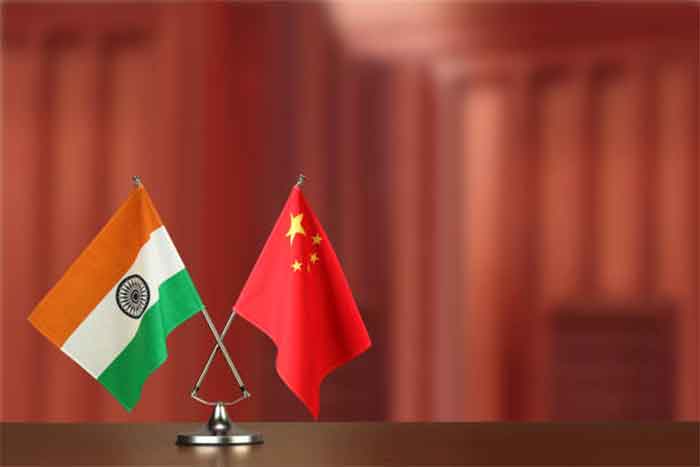
Hindustan wrote editorially on July 7 that there are indications of improvement in Indo-China tension. It further says that even if China has retreated from Galwan, we should not be in hurry to reciprocate. Its claim on Bhutanese territory is also in news. Many defence experts are also talking in the same vein. And many liberals go to the extent that we should never trust China, because China is the biggest danger for Indian security. For them, China is expansionist by its very nature and it is engaged in border conflict with all its neighbours. But, many people are of the opinion that barring India and Bhutan, China has resolved all border disputes with its neighbours. So far as Chinese engagement in South China sea, Hongkong and Taiwan is concerned, it is altogether different story, it does not fall in the category of ordinary border dispute.
Anyway, the killing of 20 Indian soldiers including the Commanding Officer of Bihar regiment on the night of 15-16 June is a matter of immense grief and condemnable, when it had already been decided in the meeting of senior military commanders on June 6 that there would be de-escalation on LAC and efforts would be made for stability, peace and tranquility. After more than 3 weeks of tension , the withdrawal by both the forces is a positive development despite the opinion of some experts and parties to the contrary. On July 5, talk between NSA Ajit Doval and Chinese Foreign Minister Wang Yee was necessary. In fact, such higher level political talk was needed even earlier. Now, it must continue. Basing on the essetial points of the agreements reached during talks in 1993, 1996, 2005, 2013,2015 on border dispute, efforts should be made to discuss and resolve the problems inherited from the colonial period as well as the current ones.
India is passing through a period of transition. In whatever state, parliamentary democracy is our political system and all parties are working under it. Emergency was certainly an exception. But, today the situation is changing qualitatively. RSS and BJP seem hell bent for imposing fascist polity and civilisation. Now, the future of parliamentary democracy and the orientation of Indian foreign policy will depend on the political balance of social forces. Whatever other weaknesses in the foreign policy, it was generally based on equality with other countries and a relative balance of super powers. This balance started weakening during UPA rule itself. Modi government took rapid strides to align with America’s Indo-Pacific military strategy. India is now a member of Quad. The status of this quadrilateral comprising US, Japan, India and Australia has been elevated and its meetings are now attended by minister level officials. Thus, India is gradually becoming US ally in containment of China. Even, during this Covid-19 pandemic, India too aligned with US to hold China responsible for it. Actually, becoming a party to the Indo-Pacific military strategy, India has unnecessarily entangled itself in US- China conflict which is, in no way, conducive to our national interest.
For containment of China, USA is busy engaging the countries of our Himalayan region in its Indo-Pacific strategy. Some examples may explain it. There is a new change in US attitude towards Tibet. Tibetan policy and support Bill has been passed in US House of Representatives in 2020. With other formalities, this will become an US Act for the defence of Tibetan culture and identity. This bill emphasises Tibetan autonomy, human rights, culture, environment and the protection of plateau region, while strengthening the central Tibetan administration. Now, everybody knows how much US is concerned about environment, human rights or respects the freedom of other nations. Capturing the technology and capital of the whole world, American rulers have become the emperors of finance capital and they are hell bent that the world remains unipolar so that all countries revolve around it. Its goal is to expand it’s influence in Himalayan region and it should be a matter of concern for India.
There is dispute over Kala Pani, Limpiyadhura and Lipulekh between Nepal and India but here too US wants to make Nepal part of Indo-US strategy. In the Standing Committee meeting of Communist Party of Nepal, this issue was raised that Nepal should not take funds from America’s Millennium Challenge Corporation (MCC) because it is part of US Indo-Pacific Strategy comprising military constituents aiming at containment of China. After Doklam, the current China-Bhutan dispute is about funds given to wild life sanctuary by an US agency. This district of Bhutan claimed by China as it’s territory borders Arunachal Pradesh of our country. There are no diplomatic relations between China and Bhutan and China blames India for it.
Actually, US is making a huge funding in the entire Himalayan region and knowledgeable sources claim that US influence is increasing in Nepalese military. All these issues must be matter of concern for India and we must be vigilant about increasing US infiltration in Himalayan region. Vigilance over China only won’t work. We should develop cordial relations with countries of Himalayan region and this relation should be on equal footing, not big brotherly. Explainations on Indo-China tension may differ, but, this time, there is broad consensus that there should be no war and the border dispute should be resolved through diplomatic and political level talks. Strong opinion is emerging that better friendly relations should be developed with neighbouring countries. In order to advance in this direction, we must pay attention to Kashmir issue also. Needless to say, Modi government’s Kashmir policy is coercive and adventurist in a way. Now, there should be a fresh thinking on the Kashmir problem and efforts must be enhanced to create public opinion against assaults by Modi government on the democratic rights of the Kashmiri people. This demand should be forcefully raised that, in order to win trust of the Kashmiri people, Modi government must rethink over it’s policy and resolve the Kashmir problem in a democratic manner.
Though there is no mechanical relation between domestic and foreign policies, yet the domestic policy does impact foreign policy. While Modi government’s domestic policy is based on coercion and oppression, all is not well in China, too. Chinese domestic policy, too, is growing coercive and its market economy with Chinese characteristics, too, is in crisis. Only time will tell how China deals with its economic crisis by increasing global trade through Belt and Road Initiative (BRI) and other measures. One major reason why there is no war between India and China, today, is power balance also.
In order to avoid any confrontation in future, we should go back a bit in the past and try to understand Indo-China border dispute. Pt. Sundar Lal, who was a renowned Gandhian, has written well on this issue that Pt. Nehru, despite his willingness, could not resolve border dispute. The confrontation between two great nations and civilisations has adversely impacted our democracy and development, too. India, today, is in the grips of domestic as well as foreign corporate finance capital in the name of new economic policy and our agriculture, jobs and small-medium enterprises are being ruined. Pt. Nehru was certainly in favour of talks with China but he was not ready to negotiate and retreat an inch from the border line determined by Britishers in British India. He was under pressure from Jan Sangh and rightist forces, even the socialists were offensive against Nehru on border dispute. The anti-China diatribe of the socialists is worth noting and irony of history as the Congress Socialist Party was doing a novel experiment in Indian context different from Soviet-backed Communist Party, its official ideology was Marxism, but its successors did not want Nehru to talk to Communist China on border dispute! Everybody knew that the border demarcation between India and China was done forcibly by British India. Dr Lohia, too, regarded McMahon Line a gift of imperialism and it was a common knowledge that there was no Chinese representative in the McMahon line accord. In western sector, too, China had no role to play in determining border in Ladakh and Ladakh based Aksai chin. In fact, rulers of British India were then engaged with the Czarist Russia, because Russia was then eyeing at the entire region from Tibet to Sikyang (Xinjiang) province. It is the same Sikyang province where the demand for religious freedom is being raised.
Anyway, India must modify its foreign policy and dissociate itself from America’s Indo-Pacific military strategy. India is still in the process of Nation-state building. Taking democracy as key-link, it should inculcate a sense of citizenship among the people; developing border areas, it should work for thoroughgoing resolution of border disputes with China, Pakistan, Nepal, Bangladesh, Srilanka or Bhutan. But the present, establishment is not interested in it.
So, in order to create public opinion, communists, socialists, Gandhians, Ambedkarites as well as environmentalists, other social movements and political groupings should come on a common political platform and make collective efforts for dealing with pandemic as well as resolving economic crisis and border dispute and march together for the defence of democracy against fascist onslaught in the country.
Akhilendra Pratap Singh, Swaraj Abhiyan
SIGN UP FOR COUNTERCURRENTS DAILY NEWSLETTER















































